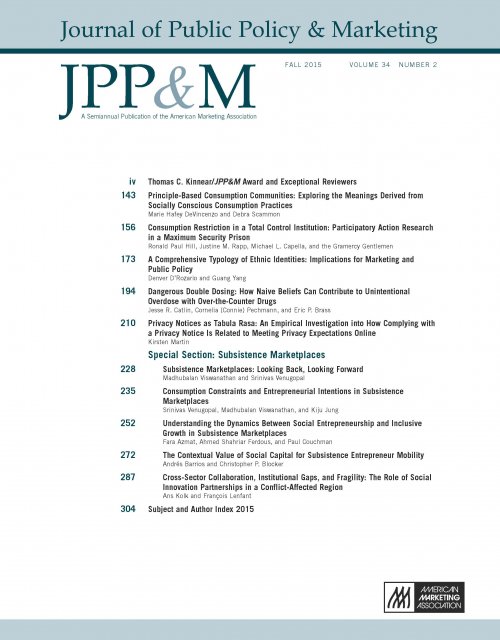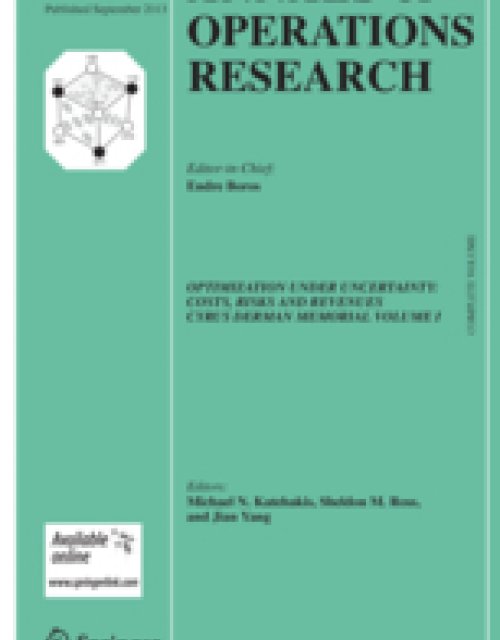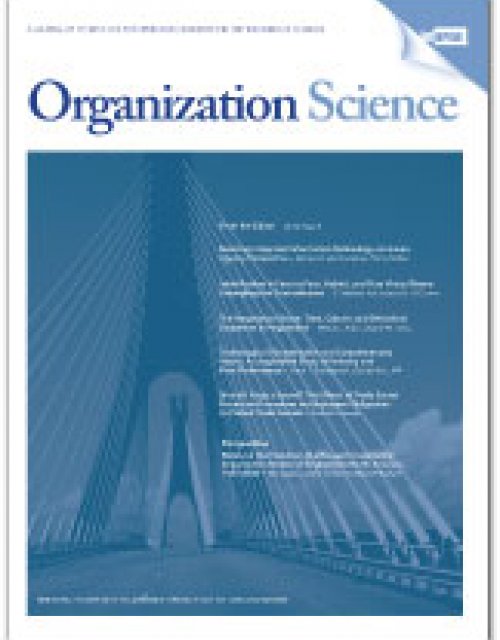Publication records
Subject(s)
Human resources management/organizational behavior; Technology, R&D management
Keyword(s)
Innovation, science, teams, collaboration, scientific credit, science policy
JEL Code(s)
O32, J01
Most scientific research is performed by teams, and for a long time, observers have inferred individual team members’ contributions by interpreting author order on published articles. In response to increasing concerns about this approach, journals are adopting policies that require the disclosure of individual authors’ contributions. However, it is not clear whether and how these disclosures improve upon the conventional approach. Moreover, there is little evidence on how contribution statements are written and how they are used by readers. We begin to address these questions in two studies. Guided by a conceptual model, Study 1 examines the relationship between author order and contribution statements on more than 12,000 articles to understand what information is provided by each. This analysis quantifies the risk of error when inferring contributions from author order and shows how this risk increases with team size and for certain types of authors. At the same time, the analysis suggests that some components of the value of contributions are reflected in author order but not in currently used contribution statements. Complementing the bibliometric analysis, Study 2 analyzes survey data from more than 6000 corresponding authors to examine how contribution statements are written and used. This analysis highlights important differences between fields and between senior versus junior scientists, as well as strongly diverging views about the benefits and limitations of contribution statements. On the basis of both studies, we highlight important avenues for future research and consider implications for a broad range of stakeholders.
Volume
3
ISSN (Online)
2375-2548
Subject(s)
Ethics and social responsibility
Keyword(s)
Sustainability disclosure, sustainability report, stock market reaction, information environment, value relevance
Public policy makers seek to enhance disclosure of firms’ sustainability performance, yet firms debate about whether, or to what extent, they should engage in sustainability reporting. This article seeks to advance current understanding about the business returns to sustainability reporting by examining the short- and long-term investor reactions. Through an event study, this research documents significant short-term stock market reaction to the release of sustainability reports. In particular, abnormal stock returns around the release of such reports are positively related to firm sustainability performance, and this positive link is smaller for firms in a strong information environment. The results show that over the long term, relative to nonreporting firms, firms that release sustainability reports enjoy higher value relevance of sustainability performance. These findings suggest that sustainability reports enhance information transparency and allow investors to incorporate sustainability information in stock valuation. This study provides strong evidence for the business case of sustainability reporting, and offers important implications for public policy makers in terms of devising policies and regulations to promote sustainability reporting.
With the permission of the American Marketing Association
Volume
36
Journal Pages
313–330
ISSN (Print)
0743–9156
Subject(s)
Information technology and systems
Keyword(s)
Robust fuzzy extractor, physical unclonable functions (PUFs), helper data manipulation attacks
Volume
PP
Journal Pages
1–14
ISSN (Print)
1545-5971
Subject(s)
Product and operations management
Keyword(s)
Supply chain management, procurement, bidding, supply risk, price volatility, price-dependent base-stock policy
We consider a firm buying a commodity from a spot market as raw material and selling a final product by submitting bids. Bidding opportunities (i.e., demand arrivals) are random, and the likelihood of winning bids (i.e., selling the product) depends on the bid price. The price of the commodity raw material is also stochastic. The objective of the firm is to jointly decide on the procurement and bidding strategies to maximize its expected total discounted profit in the face of this demand and supply randomness. We model the commodity prices in the spot market as a Markov chain and the bidding opportunities as a Poisson process. Subsequently, we formulate the decision-making problem of the firm as an infinite-horizon stochastic dynamic program and analytically characterize its structural properties. We prove that the optimal procurement strategy follows a price-dependent base-stock policy and the optimal bidding price is decreasing with respect to the inventory level. We also formulate and analyze three intuitively appealing heuristic strategies, which either do not allow for carrying inventory or adopt simpler bidding policies (e.g., a constant bid price or myopically set bid prices). Using historical daily prices of several commodities, we then calibrate our models and conduct an extensive numerical study to compare the performances of the different strategies. Our study reveals the importance of adopting the optimal integrative procurement and bidding strategy, which is particularly rewarding when the raw material prices are more volatile and/or when there is significant competition on the demand side (the probability of winning is much smaller when submitting the same bid price). We establish that the relative performances of the three heuristic strategies depend critically on the holding cost of raw material inventory and the competitive environment, and identify conditions under which the shortfalls in profits from adopting such strategies are relatively less significant.
© Springer Science+Business Media New York 2015. With permission of Springer
Volume
257
Journal Pages
121–165
Subject(s)
Human resources management/organizational behavior; Strategy and general management; Technology, R&D management
Keyword(s)
Preferences, graduate education, science careers, STEM labor markets, science policy
JEL Code(s)
O32, J22, J44
There is increasing evidence that science & engineering PhD students lose interest in an academic career over the course of graduate training. It is not clear, however, whether this decline reflects students being discouraged from pursuing an academic career by the challenges of obtaining a faculty job or whether it reflects more fundamental changes in students’ career goals for reasons other than the academic labor market. We examine this question using a longitudinal survey that follows a cohort of PhD students from 39 U.S. research universities over the course of graduate training to document changes in career preferences and to explore potential drivers of such changes. We report two main results. First, although the vast majority of students start the PhD interested in an academic research career, over time 55% of all students remain interested while 25% lose interest entirely. In addition, 15% of all students were never interested in an academic career during their PhD program, while 5% become more interested. Thus, the declining interest in an academic career is not a general phenomenon across all PhD students, but rather reflects a divergence between those students who remain highly interested in an academic career and other students who are no longer interested in one. Second, we show that the decline we observe is not driven by expectations of academic job availability, nor by related factors such as postdoctoral requirements or the availability of research funding. Instead, the decline appears partly due to the misalignment between students’ changing preferences for specific job attributes on the one hand, and the nature of the academic research career itself on the other. Changes in students’ perceptions of their own research ability also play a role, while publications do not. We discuss implications for scientific labor markets, PhD career development programs, and science policy.
Volume
12
ISSN (Online)
1932-6203
Subject(s)
Economics, politics and business environment; Ethics and social responsibility; Marketing; Strategy and general management
Keyword(s)
Corporate social responsibility (CSR); CSR regulation; customer–supplier relationship; power; stakeholder pressure
In face of the increasing attention on issues of sustainability and corporate social responsibility (CSR) by the general public and policy makers, companies have put growing emphasis on ensuring CSR along their supply chains. In this vein, existent research has produced evidence that companies can increase their suppliers’ CSR engagement by exerting explicit pressure on them, e.g., through contractual clauses. Adding to this conventional chain of CSR enforcement, this paper conceptualizes and empirically validates a so far undescribed extended chain of CSR enforcement that also leads to higher levels of a supplier firm’s CSR engagement irrespective and even in the absence of explicit pressure by its customer company. In particular, a customer firm’s CSR orientation in interaction with a powerful position in the supply chain leads suppliers to perceive pressure to engage in CSR regardless of factually exerted pressure. As a result, suppliers are likely to increase their CSR engagement in order to be customer oriented or in preemptive obedience. These results entail substantial implications for policy makers as well as marketing academics and managers.
Volume
36
Journal Pages
331–347
ISSN (Print)
0743–9156
Subject(s)
Human resources management/organizational behavior
Keyword(s)
Negotiations, emotion, conflict, selfishness, timing, communication, social norms, impasses, anger
Prior research has focused on the influence of emotional expressions on the value of negotiated outcomes. Across three studies, we demonstrate that people interacting with angry counterparts become more likely to walk away from a negotiation, resulting in an impasse. In Study 1, participants who encountered counterparts expressing anger were more likely to choose an impasse, relative to those with neutral counterparts. In Study 2, building on the emotion-as-social-information model, we found that inferences of selfishness mediate the effect of angry expressions on impasses. In Study 3, we found that timing moderates the relationship between angry expressions and impasses. Furthermore, we demonstrated that perceptions of inappropriateness mediate the interactive effect of timing and angry expressions on impasses. Taken together, our work reveals that expressing anger is risky in negotiations because people infer that angry counterparts are selfish and become more likely to exit negotiations.
With permission of SAGE Publishing
Volume
8
Journal Pages
706–714
ISSN (Online)
19485514
ISSN (Print)
19485506
Subject(s)
Economics, politics and business environment
Keyword(s)
Long-term contracts, breakup fees, foreclosure
JEL Code(s)
D11, D21, D43, D86, L13, L51
Considering markets with nonpivotal buyers, we analyze the anticompetitive effects of breakup fees used by an incumbent facing a more efficient entrant in the future. Buyers differ in their intrinsic switching costs. Breakup fees are profitably used to foreclose entry, regardless of the entrant's efficiency advantage or level of switching costs. Banning breakup fees is beneficial to consumers. The ban enhances the total welfare unless the entrant's efficiency is close to the incumbent's. Inefficient foreclosure arises not because of rent shifting from the entrant, but because the incumbent uses a long-term contract to manipulate consumers' expected surplus from not signing it.
Copyright ©2017 by the American Economic Association.
Volume
107
Journal Pages
2041–2071
Subject(s)
Finance, accounting and corporate governance
Keyword(s)
Bank lending, relationship specific information, discretion, loan defaults, monitoring, screening
JEL Code(s)
G20, G21
Using a unique dataset of more than 1 million loans made by 296 German banks, we evaluate the impact of many aspects of customer–bank relationships on loan default rates. Our research suggests a practical solution to reducing loan defaults for new customers: Have the customer open a simple transactions account – savings or checking account. Observe for some time and then decide whether to make a loan. Loans made under this model have lower default, as banks can use historical data about their borrowers to establish a baseline against which new client-related information can be evaluated. Banks assemble this historical information through relationships of different forms. We define relationships in many different ways to capture non-credit relationships, transaction accounts, as well as the depth and intensity of relationships, and find each of these can provide information that helps reduce default – even establishing a simple savings or checking account and observing the activity prior to loan granting can help reduce loan defaults. Our results show that banks with relationship-specific information act differently compared with banks that do not have this information both in screening and subsequent monitoring borrowers which helps reduce loan defaults.
With permission of Elsevier
Volume
31
Journal Pages
1–15
Subject(s)
Human resources management/organizational behavior; Technology, R&D management
Keyword(s)
Innovation, knowledge recombination, recombinant breadth, differential selection, patent, patent approval, patent impact, institutional gatekeeping
JEL Code(s)
O310, O330
Theories of innovation and technical change posit that inventions that combine knowledge across technology domains have greater impact than inventions drawn from a single domain. The evidence for this claim comes mostly from research on patented inventions and ignores failed patent applications. We draw on insights from research into institutional gatekeeping to theorize that, to be granted, patent applications that span technological domains must have higher quality than otherwise comparable, narrower applications. Using data on failed and successful patent applications, we estimate an integrated, two-stage model that accounts for this differential selection. We find that more domain-spanning patent applications are less likely to be approved, and that controlling for this differential selection reduces the estimated effect of knowledge recombination on innovative impact by about one-third. By conceptualizing the patent-approval process as a form of institutional gatekeeping, this paper highlights the institutional underpinnings of and constraints on the innovation process.
© 2017, INFORMS
Volume
28
Journal Pages
133–151




